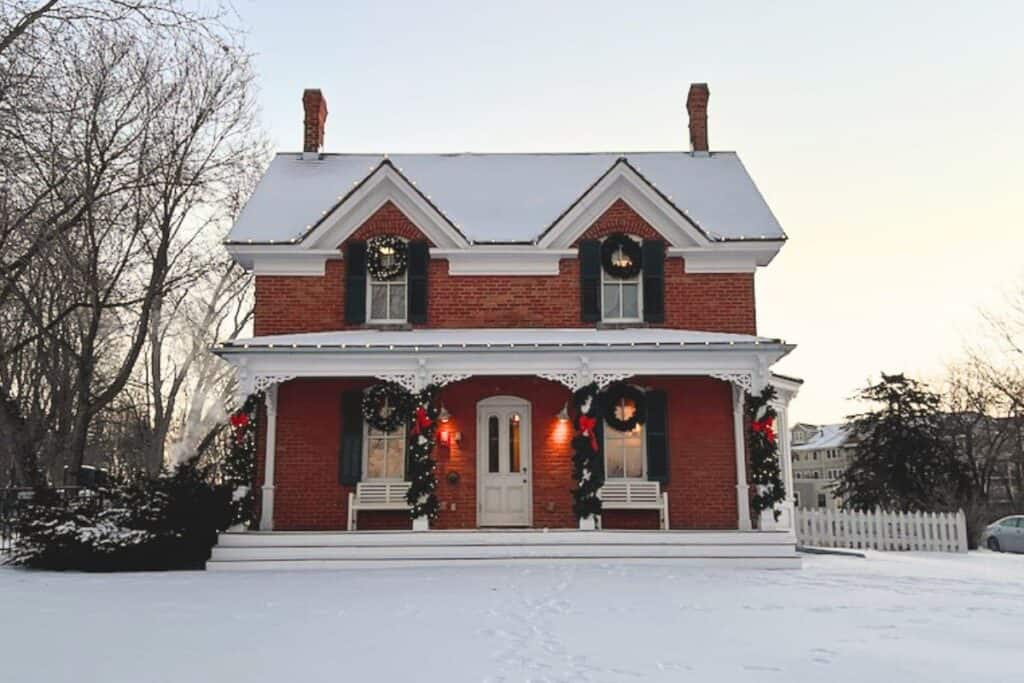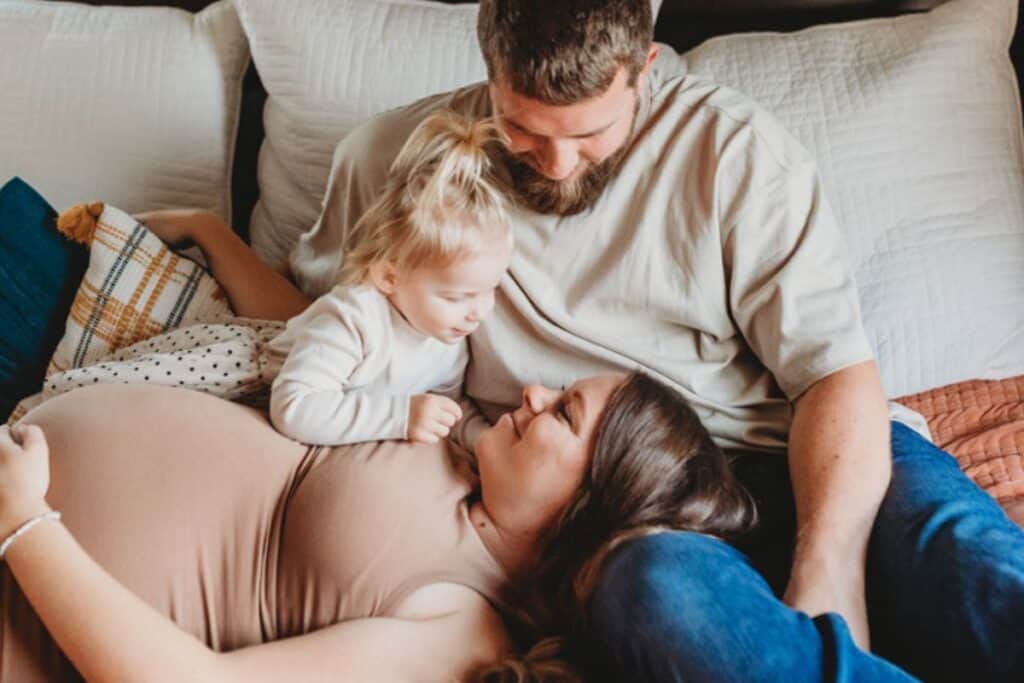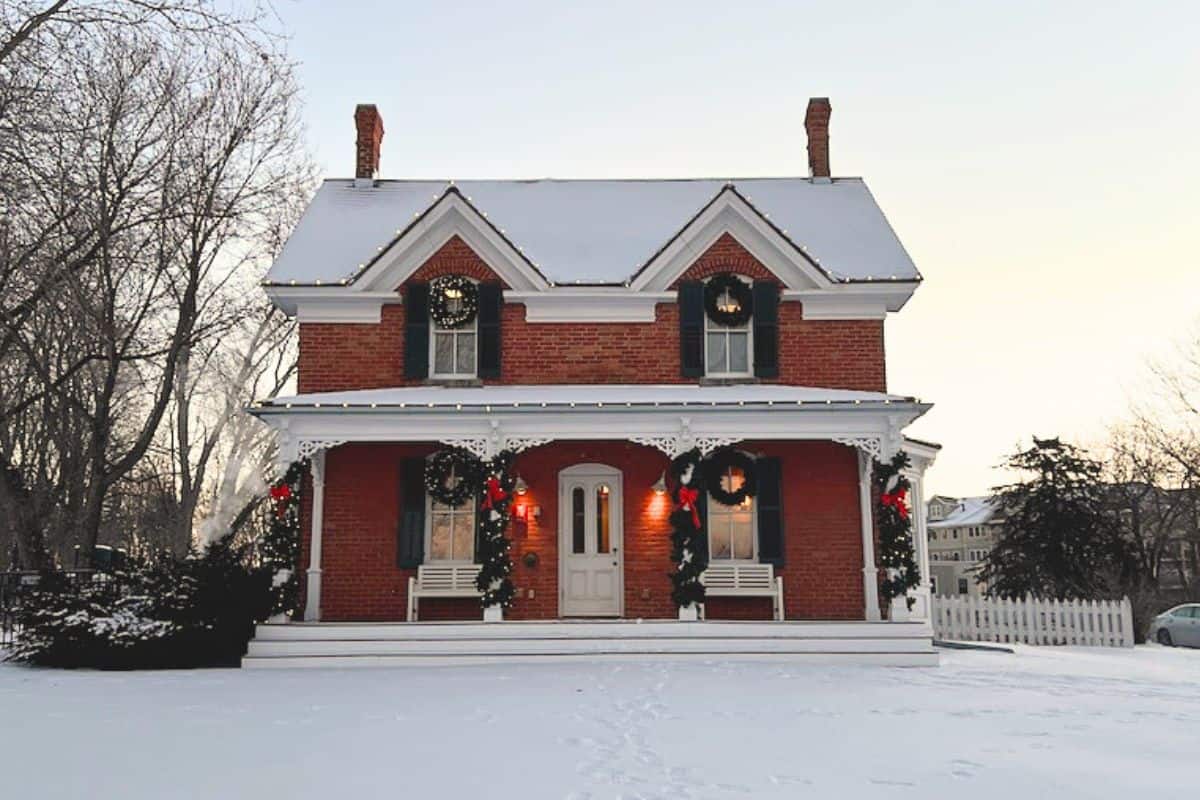“Is Renting Throwing Money Away?” The Answer is No.
Welcome back to Financial Self-Care. It’s a great day to be alive, and it’s an even better day to talk about real estate; specifically asking the question: Is renting throwing money away?
You can listen to “Is Renting Throwing Money Away? The SURPRISING Numbers” on Lindsey’s podcast, Financial Self-Care with Financial Therapist, Lindsey. Available on Spotify, Apple Podcasts, or wherever you like to listen!
I hear a lot on this topic, both as a kid that comes from generations of realtors. My dad was a realtor for more than 40 years and, before him, my grandpa was a realtor.
But beyond that, the housing market is always a hot topic in the world of finance. And, of course, it makes sense. Buying a house is one of the biggest purchases a person will make in their lifetime, so that means lots of people have lots of opinions on it.
Latte Factor vs. Home Buying
We can sit here and debate whether or not it’s a good idea to go to Starbucks everyday or not, or we can talk about whether or not a home purchase, particularly a primary home, is considered a good investment.
Just for reference, at Starbucks the other day, I made the change from my fall order of a pumpkin spiced latte to my winter order of a white chocolate peppermint mocha. My winter coffee obsession now costs $7.00 a pop. Which was a little mind-blowing in and of itself.
BUT you know I go to Starbucks about 5 times per month. That means I’m now spending roughly $420 per year on lattes and mochas from Starbies. Over the course of 30 years, I’ll spend just under $13,000 on Starbucks drinks.
The average price of a house in America today is running $420,000. If you bought that house, and put 20% down. You’re taking out a loan for $336,000.
The average interest rate for a 30-year fixed loan (at the time of this recording) is running about 7.45%. Over the life of that loan, you’ll be paying just over $505,000 in interest. Making your total money spent on that house over $925,000.
So yeah, we can debate a $13,000 question of lattes (and one day we probably will), but for now, let’s stick to questioning the potential $925,000 home purchase in 2025.
Should You Buy a House in 2025?
The difference between, “Should I get Starbucks today?” and “Should I buy a house today?” is how we approach whether or not buying a house is a good investment.
I don’t think too many girlies out there are thinking, “Yeah, my Starbucks is going to get great returns on investment!” Though one can make the case that a white chocolate peppermint mocha is an investment in happiness (ehmm, I’m calling myself out right now).
But what’s shocking to me, is how some people decide to buy a house. In many cases one might take the same level of brain power to decide if they want a mocha on a cool winter’s morning as they would if they want to become a homeowner.
Okay, I’m being a little facetious, but it’s true that very few people actually run all the numbers on buying a home.

Is Renting Throwing Money Away?
Instead, they’re sold the idea that has been passed down for several generations, and frankly, how many realtors market home buying. This out-of-date notion that buying a house is the best thing to do and renting is the worst thing to do. After all, renting is just throwing money away. Real estate is always a good investment.
Pain and simple, these statements are problematic at best and entirely false at worst.
“You should buy a home,” is generalized, blanket advice. But when it comes to money, there is very little advice that works for every person, at every age, in every location, in every season of life. Money doesn’t work that way, and buying a home is not always the best financial decision a person can make.
Last month I had coffee with a therapist friend I very much admire. We got on the topic of money and, naturally, housing came up. During that chat, I said sometimes renting is a better option. She nearly fell out of her chair. She looked at me, totally deadpanned and asked: How can you convince me that not building equity in a home is a good idea?
She, like many people think of home appreciation like this:
Aunt Kathy bought a 1950’s 3-bedroom, 2-bath house in 1984 for $80,000 and sold 40 years later for $480,000. Aunt Kathy made $400,000 on the house.
The problem is, that equation leaves out much of the imperative information you need when you ask the question, “Should I buy a house in 2025?” or “Is renting throwing money away?”
Renting Vs. Buying
Number one, just because Aunt Kathy’s house appreciated $400,000 in 40 years, doesn’t guarantee that yours house will. Like any investment, housing doesn’t appreciate consistently over time and returns are not guaranteed.
And number two, we’re missing a lot of numbers here. To get the actual earned amount for Aunt Kathy, we need to complete the puzzle. So if you’re wondering if a primary home is a good investment or if you should buy a house in 2025 or if renting is throwing money away, let’s look at what Aunt Kathy actually spent.
The Cost of Buying a Home
We’re going to have to make a few assumptions about Aunt Kathy because, well, she’s fictional. Though, I did take these numbers from averages across the nation.
Let’s say, in 1984, Kathy purchased her home for $80,000. She put $16,000 down, which is the standard 20%, and her 30-year fixed loan was for $64,000 with an interest rate of 13.88% (which was the national average back in 1984).
Buying: Interest Payments
The first thing we need to consider is, how much did Kathy pay in interest over the 30 years of having the loan? Now of course we’re assuming she never refinanced. Maybe she would have, maybe not.
She paid just under $207,000 in interest over her 30-year loan.
Buying: Property Taxes
Next, we have to account for property taxes. Of course, every state has different property tax rates. Some states don’t have property taxes. Some states, like here in Minnesota, have shoreline taxes, so if you live on a lake your property taxes are higher. The point is, this is going to vary widely from state-to-state.
However, for those in state’s with property tax, it’s something you gotta consider. On average, property taxes run about 1%. We’ll use a conservative number of .75% for Aunt Kathy’s taxes. For her property, she paid $18,000 in property taxes. Plus, another $20,000 in the last decade after she didn’t owe on her mortgage. Totalling $38,000.
Buying: Home Insurance
Like you, Aunt Kathy needs to pay for home insurance. Home insurance rates have drastically increased in recent years, so that’s something to be aware of, especially if you’re looking to buy a home in 2025. For Aunt Kathy, though, we’ll assume she paid about $15,000 based on average historical home insurance rates.
Now, at this point in our calculations, Aunt Kathy’s profits went from $400,000 based on our initial appreciation assessment to only $140,000 when factoring interest, property taxes, and homeowners insurance.
Buying: Closing Costs
We haven’t mentioned closing costs yet, which are generally split between the buyer and seller and typically vary from 2% to 6% of the home loan. Sellers usually pay less than buyers, but Aunt Kathy cdertainly would have paid for the real estate agent’s commission and possibly a transfer tax.
We’ll give Aunt Kathy the benefit of the doubt here, and say she paid 2% in closing costs at the time of sale. One her $480,000 home, she would have paid $9,600 in closing costs.
This isn’t to mention the closing costs she paid at the time of purchase, in 1984. Even if she paid only 3% on her $80,000 home, that’s an additional $2,400 out of Aunt Kathy’s pocket.
Buying: Home Renovations
Finally, we have to be honest about what else Aunt Kathy may have paid for during her 40 years in her home.
Most roofs need to be repaired every 15-25 years, so Aunt Kathy certainly put a new roof on her house. Even if she was quote-end-quote “lucky” and had hail damage, she still would have to make a claim against her insurance and pay the deductible. Not to mention HVAC systems, cosmetic repairs,
They say home upkeep can cost 1%-4% of the home’s value every year. (Though, Forbes recently wrote an article stating the average annual upkeep for a single family home costs $6548, a new record high.)
Let’s say Aunt Kathy’s 1950’s home had really good bones and her upkeep was on the low side of average. We’re giving Aunt Kathy a lot of conservative estimates here, with most things being calculated on the low side of average.
Using 1% for home maintenance costs, she paid $68,000 over 40 years to maintain her home.
I want to highlight just how low this estimate is. In the last two years, my husband and I have put well over $20,000 into our 1950’s home, with adding a third bedroom, needing a new roof, getting a new water heater, and a couple other minor improvements.
After adding in closing costs and home maintenance, Aunt Kathy’s profits just decreased again by $80,000.
There are almost certainly things even I’ve forgotten in the scenario, but we’ll stop here.
Total Cost of Buying a Home
In total, Aunt Kathy paid $420,000 for her house, leaving Aunt Kathy with a whopping $60,000 in home appreciation profits over 40 years.
Do you see what I mean?
That initial $480,000 minus $80,000 was missing a whole lotta numbers. And when you’re running the profit margins on primary homes, you have to be realistic. Buying a primary home is actually not a very good investment, financially speaking.
To be honest, I started this scenario assuming Aunt Kathy bought this house in 2004 for $200,000 and selling 20 years later for $500,000. And the outcome was even more bleak.
On the flip side, I want to see what Aunt Kathy would have spent if she had chosen to rent for those 40 years.
The Cost of Renting
Now, rent is one of those things that’s very hard to calculate.
The average rental cost for a 4-bedroom home in Omaha, Nebraska is about $2,300 while the average rent for a shoebox in Manhattan is nearly $4,500.
Rental Rates
Because we took national averages for Aunt Kathy’s home price, we’ll do the same for rental prices. According to the 2000 census brief, the 1990 national average for renters was $571 per month. That jumped to $602 in 2000. Without boring you with all the numbers, suffice it to say, Aunt Kathy would have spent just under $390,000.
Renting: Moving Costs
It’s highly unlikely she would have been able to stay in the same place for 40 years, so to keep it realistic, we’ll say Kathy moved every 5 years. The average cost to hire movers for a local move is about $1,000. Over her 40 years, Aunt Kathy paid $8,000 in moving costs.
It’s worth noting, Aunt Kathy was a good tenant; she always got her security deposit back.
Total Cost of Renting
In total, for renting the last 40 years, Aunt Kathy paid $398,000.
It turns out, in Aunt Kathy’s case – using the national averages – renting would have been cheaper.
Sure Aunt Kathy didn’t gain anything from an asset appreciation standpoint (AKA she didn’t earn the $60,000 in profits). But what if she would have invested the $22,000 difference that she saved while renting rather owning a home?
Remember, over the course of 40 years, Aunt Kathy paid $420,000 for her home and over the course of those same 40 years, in a parallel universe, Aunt Kathy spent $398,000 on rent.
If Aunt Kathy had dollar cost averaged that $22,000 difference. Meaning she put $45 per month into a retirement savings account for 40 years, Kathy would have earned over $90,000 on that money.
Ultimately, making her net profit larger – $30,000 larger – by renting rather than owning.
Is Renting Throwing Money Away? Other Considerations
At the beginning of this episode I said generalized, blanket advice is problematic. And I stick to that assessment.
I’m not here to tell you that buying a home is a bad idea. Hell, I’m a homeowner.
I just told you that we’ve put close to $23,000 into our primary home in the last two years. In the last two years alone, we’ve put $61,000 into our house. If we rented our exact same house, we would have only spent $57,000.
But I’m here to implore you to run the numbers – all the numbers – to make a sound decision.
The rent vs. buy debate is an extremely individualized, hyper local, extremely emotional decision.
It’s unlikely that owning a home is as great a financial decision as consumerism would like you to believe, but there are a ton of reasons to own a home. The primary of which might be stability.
As a homeowner with two small kids, it’s really nice to know that we don’t have to answer to anyone when it comes to whether or not we’re going to have to move.
We take pride in our home, the way college Lindsey didn’t take pride in the homes I rented (shoutout to Winona State and The Barn).
And even though those things are true for me now, research says that homeowners aren’t any happier than renters. The reason being, homeownership can be extremely stressful.
Last Friday, when I had to cancel plans to go to the pumpkin patch with my kids because our basement flooded and we needed the plumber to come out, I was certainly not happy.
Do you know what would have been lovely? Calling a landlord to deal with the water issue, while my kids and I merrily drank hot cider and jumped in a corn pit.

The Wrap Up: Is Renting Throwing Money Away?
I talk ad nauseam about your North Stars, your unique, individual goals, dreams, and desires. And the rent vs. buy debate is no exception to this.
Visualize the life you see for yourself.
Run the numbers (and be realistic).
Admit money is emotional (and that’s okay).
And do what makes you happy.
Thanks for listening. If you learned something from today’s episode, please go rate and review the show. I appreciate it more than you know!
Now go enjoy the rest of your day!
Read next: Can Money Buy Happiness?
